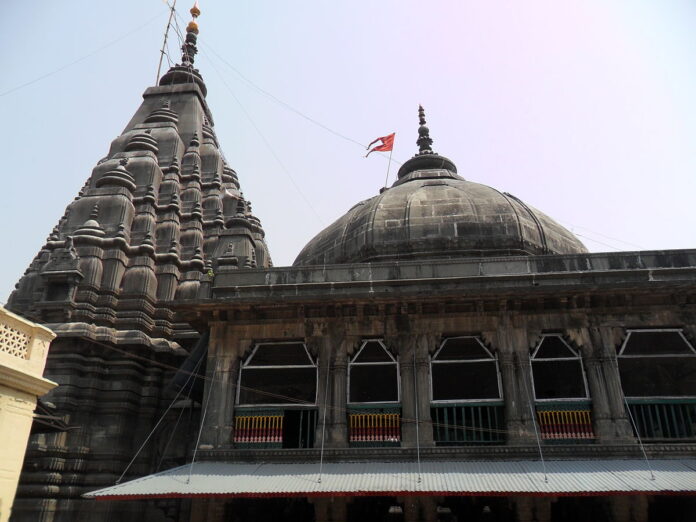Sami Ahmad, TwoCircles.net
Patna: At a time when Buddhists are agitating for their rights in Bodh Gaya, Bihar Chief Minister Nitish Kumar stunned many of his supporters by announcing the renaming of Gaya to Gayaji. A one-line official statement from the General Administration Department read, “Given ancient, historical and religious importance, the name of Gaya town has been changed to Gayaji.”
Many believe that this move has opened the floodgates for similar name-change demands across Bihar, something Nitish had resisted for almost two decades in power. The decision is widely seen as a continuation of the “soft Hindutva” approach, which he has been accused of adopting – “subtly at times and brazenly at others”.
Just a few months ago, senior Bharatiya Janata Party (BJP) leader and one of Nitish’s two deputies, Samrat Chaudhary, had demanded that the name of Patna’s Baghalpur be changed.
The frustration among a section of Nitish’s supporters can be traced back to his earlier stance. He had once publicly ridiculed the demand to change the name of Bakhtiyarpur, claimed by Hindutva groups to be associated with Bakhtiyar Khilji. Some of these groups have already begun informally referring to Bihar Sharif as Bihar Sri and Phulwari Sharif as Phulwari Sri.
However, Nitish’s alleged flirtation with “soft Hindutva” did not begin with this name change. His government has made several overtures to Hindutva sentiments by launching schemes that critics argue are out of step with secular governance.
For instance, a rubber dam was constructed at a cost of Rs 324 crore in Gaya to assist Hindu pilgrims performing pind daan rituals in the Falgu River – said in Hindu mythology to be cursed to remain dry. Though the dam ultimately proved ineffective, Nitish pushed ahead with what many saw as a “soft Hindutva project”.
More recently, the government announced plans to develop Punaura in Sitamarhi along the lines of Ayodhya. Punaura, now renamed Punauradham, is claimed by many in India to be the birthplace of Sita, wife of Lord Ram, while Nepal asserts that Janakpur holds that distinction. The Bihar Tourism Department has allocated Rs 143 crore to develop Punauradham as part of the Ramayan Circuit.
Commenting on the name change of Gaya, Professor Abdul Qadir, a native of the city, told TwoCircles.net, “The reason why Nitish got into this essentially BJP game is that he has become extremely weak, and a weak body is vulnerable to all kinds of infection.”
He elaborated further, “As for why Nitish Kumar succumbed to BJP pressure, all signs suggest that, much like his health, he is no longer fully in control politically. This represents Nitish’s total surrender to the Hindutva party. Keeping hard-core Hindutva elements at bay was once the hallmark of Nitish’s politics, but now, things have changed. (His party) The JD(U) appears to be fully tied to the saffron apron strings. Moreover, when you cannot change realities, you change nomenclature – that seems to be the strategy.”
Professor Pushpendra, former professor and dean at TISS, offered additional context to this “name change politics”.
“Three trends are clearly visible in renaming efforts. First, a desire to de-anglicise names using local languages and traditional titles reflecting a city’s historical and cultural significance – examples include Thiruvananthapuram, Kolkata, Bengaluru and Mumbai. Second, erasing names with Mughal or Islamic lineage, often rooted in Arabic, Persian or Urdu. Third, establishing or reinforcing a place’s Hindu identity. The latter two trends are being aggressively pursued under the Hindutva ideology,” he said.
The academician argued that Nitish’s decision to rename Gaya as Gayaji is guided by both the second and third trends. “Legally, the name change transforms Gaya from a secular geographical entity into a sacred religious one,” he said, adding that “the message is loud and clear – Nitish has abandoned whatever secular credentials he had left”.
He further said that with state assembly elections approaching, the move signals “political anxiety” on the part of Nitish Kumar and the JD(U), which are “increasingly leaning on Hindu appeasement”. This, he added, is also evident in their soft approach toward rising instances of hate speech, communal riots and mob lynchings in the state.
Professor Pushpendra contended that the state government’s recent focus on investing in religious sites and promoting religious tourism is part of the same appeasement politics.
Meanwhile, Professor Qadir critiqued the name change from another perspective. “According to Shakespeare, a change of name means nothing. By that logic, Gayaji will remain as polluted as Gaya,” he said.
He continued, “In 2018, the WHO ranked Gaya as the fourth most polluted city in the world. So Gaya and Gayaji remain the same. Civic issues like water scarcity, traffic congestion, large-scale encroachments, crime, corruption, illiteracy, poverty, malnutrition and the ill-treatment of women and other marginalised groups remain just as severe.”
The professor is uncertain whether more cities in Bihar will undergo similar renaming. “Maybe more cities will get new names, but nothing can be said with certainty at this stage. It will depend on the political fallout of this name change,” he said.
On the other hand, Professor Pushpendra believes the floodgates have opened. “It is doubtful that Nitish Kumar can resist if Hindutva forces demand the renaming of places like Bihar Sharif and Phulwari Sharif.”


